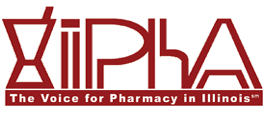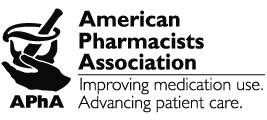Requirements for Doctors and Nurses in Medical Marijuana Certifications
 Over the past decade, marijuana has been recognized as a substance that can provide patients with a number of medical benefits. Many states, including Illinois, have authorized the use of medical marijuana for patients with certain types of conditions. However, doctors, nurses, or other medical professionals will need to make sure they are following the correct procedures and meeting all requirements when certifying patients to use medical marijuana. Failure to do so could result in disciplinary action by the Illinois Medical Board, the Illinois Board of Nursing, or another division of the Illinois Department of Financial and Professional Regulation (IDFPR).
Over the past decade, marijuana has been recognized as a substance that can provide patients with a number of medical benefits. Many states, including Illinois, have authorized the use of medical marijuana for patients with certain types of conditions. However, doctors, nurses, or other medical professionals will need to make sure they are following the correct procedures and meeting all requirements when certifying patients to use medical marijuana. Failure to do so could result in disciplinary action by the Illinois Medical Board, the Illinois Board of Nursing, or another division of the Illinois Department of Financial and Professional Regulation (IDFPR).
Health Care Professional Certifications for Medical Cannabis
Before applying for a medical cannabis registry identification card, patients in Illinois will need to receive a certification from a medical professional stating that they have a qualifying debilitating condition. Health care professionals that can provide this certification include medical doctors, doctors of osteopathic medicine, advanced practice nurses, physician assistants, and advance practice registered nurses with full practice authority.
Debilitating conditions that will allow a patient to qualify for the use of medical marijuana include HIV/AIDS, Parkinson’s disease, cancer, glaucoma, Hepatitis C, Crohn’s disease, migraines, seizures, rheumatoid arthritis, and traumatic brain injury. The Opioid Alternative Pilot Program also allows patients who could receive prescriptions for opioid painkillers to qualify for the use of medical cannabis.
When completing a certification, a medical professional will need to meet the following requirements:
- The professional must have a bona fide provider/patient relationship with the patient that is not limited to issuing a medical cannabis certification.
- The professional must provide ongoing treatment for the patient’s debilitating medical condition, and this treatment must not be limited to certifying a patient for the use of medical marijuana or providing a consultation for this purpose.
- The professional must complete an in-person assessment of the patient’s condition, consider their medical history, and perform a physical examination.
- The professional must certify that the patient is under their care as a primary medical provider or to provide treatment for a debilitating medical condition or the symptoms related to this type of condition.
Patients who receive a health care professional certification and qualify to use medical marijuana will be able to purchase 2.5 ounces of medical cannabis from a licensed dispensary during a 14-day period. If this amount of marijuana would be insufficient to address a patient’s needs, the health care professional who completed the certification may submit a written statement that 2.5 ounces would not be an adequate supply to alleviate the patient’s condition. If the Illinois Department of Public Health approves the waiver, the patient will be able to purchase more than 2.5 ounces of marijuana in a 14-day period.
Contact an Illinois Medical Marijuana Attorney
If you have questions about how providing certifications for medical marijuana may affect your medical license, or if you are facing discipline to your license related to medical cannabis, The Law Offices of Joseph J. Bogdan, Inc. can assist you. Contact our Illinois medical cannabis licensing lawyer at 630-310-1267 to arrange a complimentary consultation.
Sources:
https://www.dph.illinois.gov/topics-services/prevention-wellness/medical-cannabis/physician-information
https://www.dph.illinois.gov/topics-services/prevention-wellness/medical-cannabis/opioid-alternative-pilot-program
https://www.dph.illinois.gov/topics-services/prevention-wellness/medical-cannabis/debilitating-conditions














